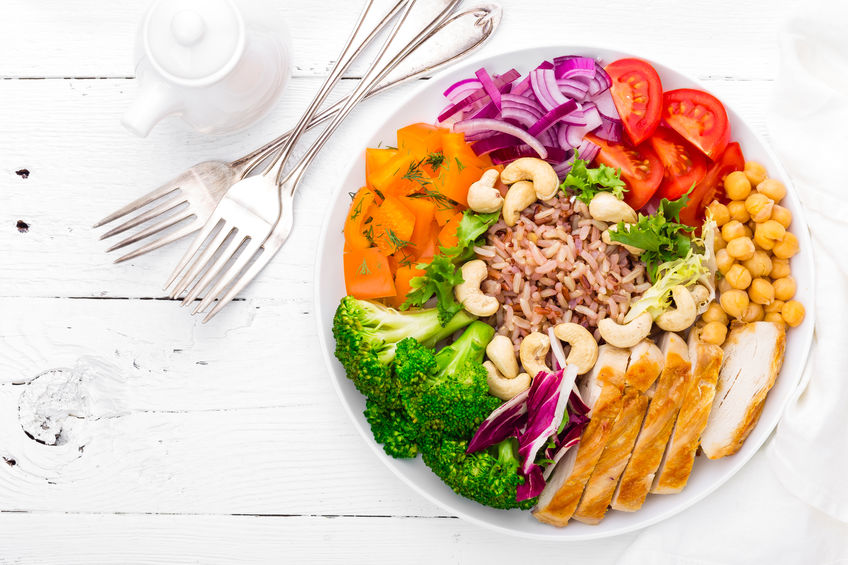As a distance learner, your life is likely busy. Classes, homework, and life in general can make it difficult to eat healthy. It can be tempting to just grab fast food instead of asserting the effort to make a home-cooked meal.
While many folks discovered the joy of cooking healthier food during the lockdowns of the COVID-19 pandemic, others may still feel uneasy about cooking.
In this blog post, we’ll share a handful of healthy foods to help kickstart (and sustain) your learning. Fortunately, many of the brain-boosting foods we’ll discuss can be eaten right on their own. So even if you don’t have time to cook between meals (especially when facing a big exam), there are some superfoods you can eat while on-the-go.
Let’s dive in!
Dark chocolate
When you go to your online class, make sure a handful of dark chocolates are nearby. The dark chocolate’s cocoa is loaded with flavonoids that help increase the blood flow to your brain and improve brain function. In fact, cocoa has the highest flavonoid content by weight out of any other food.
With this jump to your brain, you’ll likely be better at solving problems, paying attention, and remembering facts that will be on the next test. And when test-time comes, you may want to eat a few beforehand to help you perform at the top of your game.
Nuts
Nuts such as almonds are packed with vitamins and protein that can help you concentrate when studying for that big exam. In addition, walnuts can improve your memory due to the antioxidants that fight against cognitive decline.
I’ve found that nuts help me stay full longer than other snack foods like potato chips or cookies, which is good for learning.
Having a belly that isn’t rumbling can allow you to focus on your homework and help you work for longer stretches at a time.
Dark leafy green vegetables
A 2018 report in the journal Neurology states that eating a serving of green leafy vegetables a day can help prevent cognitive decline. If you’re not an older person, the brain benefits are still there. The nutrients found in these veggies, such Vitamins A, C, and K, can help boost your brain functions.
The following are some examples of this superfood:
- Spinach
- Kale
- Swiss chard
- Collard greens
- Turnip greens
You could go all-in and make a spinach, kale, chard, collard, and turnip casserole or shake. It might not taste great, but your brain will appreciate it.
Wild salmon
This fatty fish is a fantastic source of Omega-2 oil DHA, which can improve your memory and focus. It also includes Vitamins A and D, both of which can help boost brain function.
If you have a long night of studying ahead of you, you may want to cook up some salmon to kickstart your brain. The protein should help you stay full enough for the length of the test, which means you’ll be less distracted.
Berries
The antioxidants in berries help protect the cells in your brain. Berries can also assist in improving your thinking and motor skills. They also can prevent inflammation in the brain.
It may be a good idea to keep berries in your fridge. They are a healthy alternative to other sweet or sour snacks you could choose.
Here are a few common berries you can likely find in your local grocery store:
- Strawberries
- Blueberries
- Raspberries
- Cranberries
- Blackberries
Citrus Fruits
The polyphenols in citrus fruits have anti-inflammatory and anti-oxidative properties that can help keep your brain safe from harm. These polyphenols also help your brain function better.
Some common citrus fruits include:
- Oranges
- Tangerines
- Grapefruit
- Lemons
- Key limes
Consider adding an orange or grapefruit to your meal. Doing so could provide some solid cognitive benefits.
Water
Dehydration isn’t great for mental fatigue, and it contributes to the premature aging of your brain. A lack of water can also affect your memory, making it more difficult to retain information.
I’ve discovered that if I don’t drink enough, I’ll get headaches. And since pain and learning don’t mix well, it’s best to drink plenty of water.
So how much water should you be drinking each day? While the research on this varies, men should stick with three liters (13 cups) and women should drink a little over two liters (9 cups).
If you don’t have a refillable water bottle, I recommend getting one. Just like you need water before or after exercising, you need water when you learn and problem-solve.
Wrapping up
There are plenty of foods you can eat to keep your brain in tip-top condition. Don’t forget to stay hydrated and remember to be conscious of what you eat, since doing so can help you in school. Your brain is what’s going to get you that degree, so take care of it by eating right.
